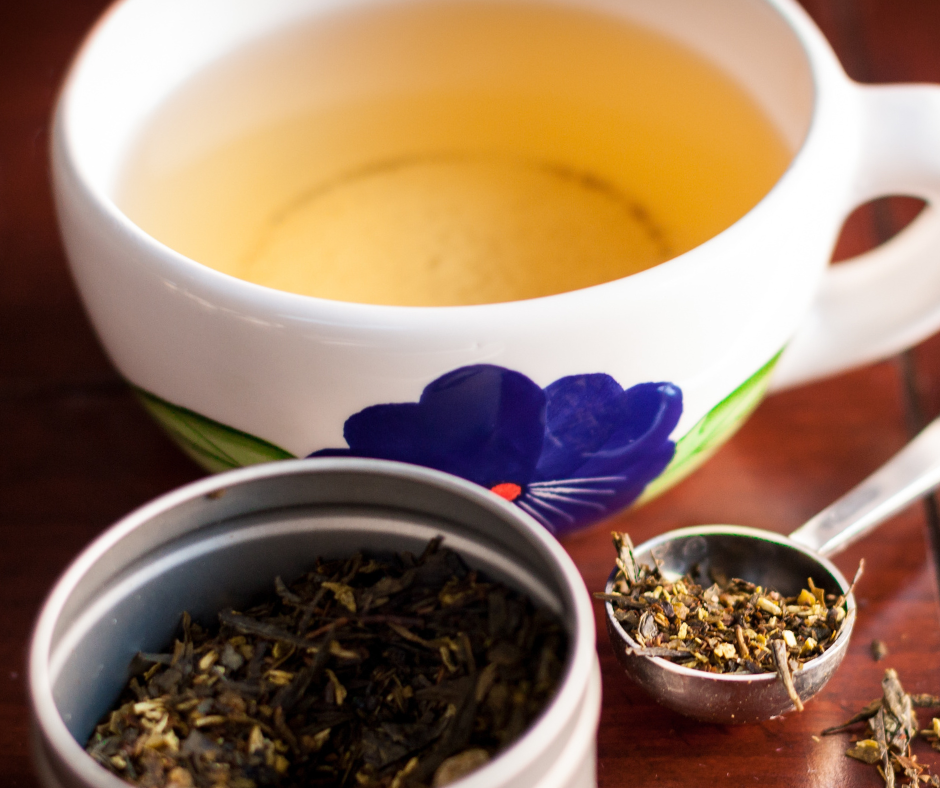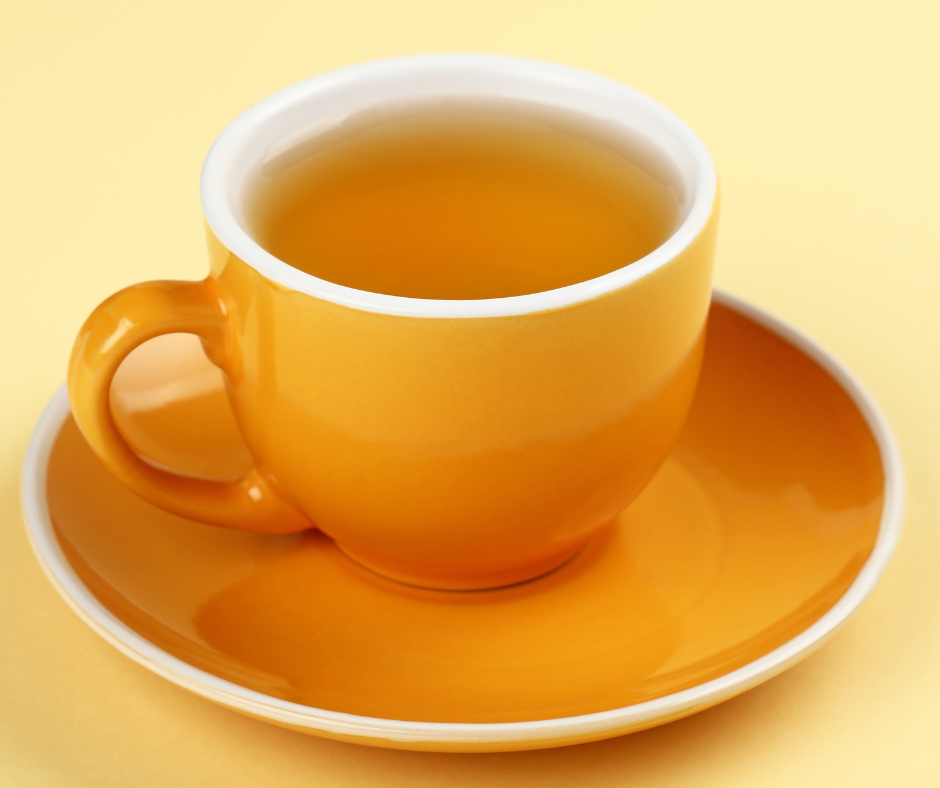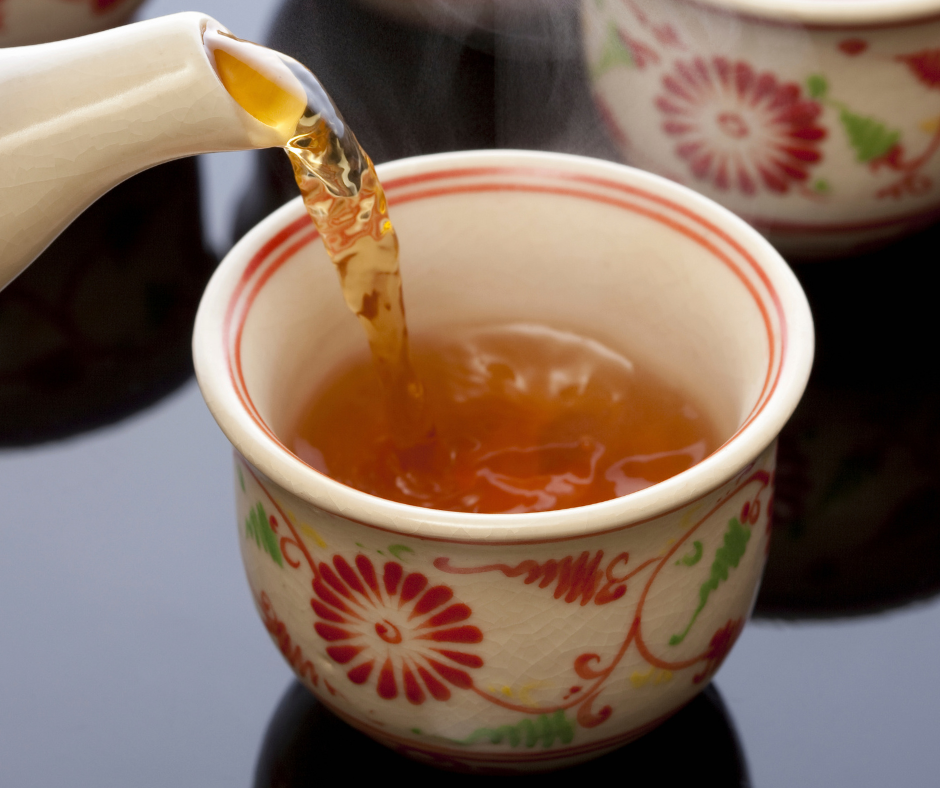Introduction
Tea is a beloved beverage enjoyed by many around the world. Oolong tea is a unique type that offers a blend of green and black tea flavors. But what sets oolong tea apart from other teas is its caffeine content. This article will explore the world of oolong tea and provide insights into the Oolong Tea Caffeine Content, brewing techniques, and storage methods.
What Is Oolong Tea?
Oolong tea is a traditional Chinese tea that is partially fermented, falling between green and black tea. The tea leaves are withered, rolled, and oxidized to varying degrees depending on the desired flavor profile. Oolong tea can range in flavor and aroma from floral and fruity to smoky and earthy. This versatile tea is available in many grades and varieties, each with its unique flavor and caffeine content.
Why Caffeine Content Is Important?
Caffeine is a naturally occurring compound found in tea leaves responsible for the stimulating effects of tea consumption. Knowing the caffeine content of oolong tea is essential for people who are sensitive to caffeine or want to decrease their caffeine intake. Unlike coffee, oolong tea contains less caffeine. An 8oz cup of oolong tea yields about one-third less caffeine than an 8oz cup of coffee. However, the Oolong Tea Caffeine Content can vary depending on the type of tea leaves, the brewing method, and the steeping time.
In summary, oolong tea is unique with a delightful combination of green and black tea flavors. Its caffeine content is less than coffee’s, making it a perfect choice for people looking for a low-caffeine beverage. Understanding the caffeine content of oolong tea and brewing techniques are crucial to get the most out of this delightful tea.
Factors Affecting The Caffeine Content Of Oolong Tea
Oolong tea is a popular worldwide beverage renowned for its unique taste and health benefits. However, the amount of caffeine in a cup of oolong tea can vary considerably, depending on various factors. Understanding these factors can help you control the caffeine content in your cup of tea. Here are some factors affecting the caffeine content of oolong tea:
Brewing Temperature And Time
One of the most significant factors that affect the Oolong Tea Caffeine Content is the brewing temperature and time. The caffeine content in tea increases with higher temperatures and more extended steeping times. Thus, if you want a low-caffeine cup of oolong tea, you should brew tea at a lower temperature and for a shorter time.
Tea Quality And Leaves
The quality of the tea leaves used to brew oolong tea can significantly affect its caffeine content. Typically, high-quality oolong tea contains fewer caffeine levels than low-grade teas. Additionally, the caffeine content in a cup of tea depends on the number of tea leaves, size, and the level of oxidation and fermentation.
Water Type And Quality
Another factor that can affect the Oolong Tea Caffeine Content is the type and quality of water used for brewing. Distilled or filtered water tends to have fewer minerals and impurities that may affect the tea’s flavor and caffeine content. Tap or hard water may result in a stronger, more caffeinated tea.
In conclusion, the Oolong Tea Caffeine Content can vary substantially, depending on several factors. You can enjoy a perfect cup of oolong tea with a consistent caffeine dose by controlling the brewing temperature and time, choosing high-quality tea leaves, and using clean, filtered water.
How Caffeine Affects Our Body
Caffeine is a naturally occurring stimulant that affects our central nervous system, which makes us feel more alert and awake. It is found in various foods and drinks, including coffee, chocolate, and tea, such as oolong tea. Here’s how caffeine affects our body:
Caffeine’s Effect On The Central Nervous System
Caffeine is a psychoactive substance that affects the central nervous system by blocking adenosine receptors that promote sleep and relaxation. As a result, caffeine consumption increases neurotransmitters such as dopamine, norepinephrine, and acetylcholine, responsible for attention, mood, and arousal.
However, caffeine can also have adverse effects on some people, such as jitteriness, anxiety, and insomnia, particularly in higher doses. It is essential to consume caffeine in moderation, especially if you are sensitive to its effects.
Caffeine’s Effect On Energy And Metabolism
Caffeine consumption is also linked to increased energy expenditure and fat oxidation, as observed in a study on oolong tea consumption in humans. Caffeine increases metabolic rate by stimulating the breakdown of stored fats and carbohydrates, increasing energy and alertness.
However, the effects of caffeine can diminish over time as the body develops tolerance to its effects, leading to reduced energy-boosting effects.
In conclusion, caffeine can have both beneficial and adverse effects on our body. By understanding how caffeine affects our central nervous system and metabolism, we can make informed decisions about its consumption to enjoy its benefits without its negative consequences.
Measuring Oolong Tea Caffeine Content
Oolong tea is a semi-oxidized tea that falls in green and black teas. It is known for its unique flavor profile and moderate caffeine content. An 8 oz. cup of oolong tea typically contains around 50-75 mg of caffeine, more than green tea but less than black tea.
Average Oolong Tea Caffeine Content
While the average Oolong Tea Caffeine Content is around 50-75 mg of caffeine per 8 oz. cup, the actual caffeine content can vary depending on various factors. The caffeine content is influenced by the tea’s origin, processing method, brewing time and temperature, and even the water used for brewing.
Variation Among Tea Strains And Brands
Studies have found that the caffeine levels in oolong tea can vary significantly among different tea strains and brands. For instance, research into the caffeine content of various oolong tea varieties and brands found that the levels range from 16.6 to 55.4 mg per 8 oz. cup. It is essential to check the caffeine content of the tea you consume, especially if you are sensitive to caffeine or want to limit your caffeine intake.
In conclusion, oolong tea contains moderate caffeine, which can vary among different tea strains and brands. While caffeine can have both beneficial and adverse effects on our bodies, consuming oolong tea in moderation can provide a unique flavor and potential health benefits without the negative consequences of excessive caffeine consumption.
Common Myths About Oolong Tea Caffeine Content
There are a lot of misconceptions and confusion about the Oolong Tea Caffeine Content. Two common myths are that black tea has a higher caffeine content than green or white tea and that a short boiling water rinse can effectively decaffeinate tea. While these may be true to some extent, they do not apply to oolong tea, as its caffeine content can differ depending on its variety and steeping technique.
Caffeine-free Oolong Tea
It is essential to note that drinking a caffeine-free oolong tea is possible. Removing caffeine from tea typically involves using chemicals, which can affect the tea’s overall flavor and quality. Oolong tea varieties naturally contain low caffeine levels or can be steeped with cooler water and shorter brewing time, resulting in a lower caffeine content. Some tea brands also offer decaf oolong teas that have undergone the CO2 decaffeination process, which preserves the tea’s flavor and quality.
Caffeine Crash After Drinking Oolong Tea
While oolong tea has a moderate caffeine content, it is not likely to cause a caffeine crash. Unlike coffee with a high caffeine content that can cause a sudden energy boost followed by a rapid energy drop, oolong tea’s caffeine is released slowly, resulting in a more gradual and extended energy boost. Additionally, the amino acid theanine in oolong tea can promote relaxation, balance the caffeine’s effects, and prevent jitters and energy crashes.
In summary, while oolong tea’s caffeine content can differ depending on its variety and steeping technique, it typically falls between green and black tea’s caffeine content. Drinking caffeine-free oolong tea is possible, and the caffeine crash is not a common occurrence when consuming oolong tea in moderation.
Oolong Tea Caffeine Vs. Other Caffeinated Beverages
Regarding caffeine content, the type and amount of drink you consume can significantly affect your caffeine intake. Here’s how oolong tea compares to other popular caffeinated beverages:
Caffeine Content In Green Tea, Black Tea, Coffee, And Soda
Black tea, on average, contains 20-80 mg of caffeine per serving, while green tea contains 10-40 mg of caffeine per serving. Oolong tea falls in between, with an average of 10-60 mg of caffeine per serving. On the other hand, coffee can contain up to 200 mg of caffeine per serving, depending on the roast and type. Compare this to soda, which has an average of 30-60 mg of caffeine per serving.
Comparison Of Caffeine Absorption And Digestion
While oolong tea, black tea, and green tea have similar caffeine content, the caffeine in tea is absorbed and digested differently than the caffeine in coffee or soda. Tea’s caffeine is slowly released, making it a more prolonged, gradual energy boost. This also results in fewer jitters and energy crashes. In comparison, coffee’s caffeine is quickly absorbed, leading to a rapid energy boost but also a quick energy drop. Soda’s caffeine is also quickly absorbed, but it contains added sugars that can also lead to a quick energy drop.
In summary, while oolong tea’s caffeine content may fall between green and black teas, it offers a milder and more gradual energy boost than coffee and soda. It is important to remember that caffeine sensitivity varies from person to person, so drinking oolong tea in moderation and paying attention to your body’s reactions is essential. Oolong tea is a great choice for those who want to enjoy a warm, flavorful, and moderately caffeinated beverage.
Health Benefits Of Caffeine In Oolong Tea
Oolong tea is a traditional Chinese tea that has been enjoyed for centuries, and it is known for its unique flavor and relatively low caffeine content. While caffeine is often associated with negative effects like jitters or sleeplessness, it can also have significant health benefits when consumed in moderation. Here’s how caffeine in oolong tea can positively impact your health:
Caffeine’s Impact On Brain Function
One of the most significant benefits of caffeine is its ability to improve mental alertness and cognitive function. Combining caffeine and theanine in oolong tea has enhanced mental performance, focusing, attention, and memory retention. This can be particularly beneficial for individuals who need to stay alert and focused for extended periods, such as students or professionals.
Caffeine’s Role In Preventing Diseases
Research has also shown that caffeine can play a role in preventing certain diseases. For example, caffeine has been linked to a lower risk of developing Parkinson’s disease, Alzheimer’s disease, and liver cancer. Additionally, caffeine may help reduce the risk of heart disease by improving cholesterol levels and reducing inflammation.
It is important to note that consuming too much caffeine can have negative side effects, such as anxiety, headaches, and difficulty sleeping. However, moderate caffeine consumption, such as that found in oolong tea, can positively affect brain function and disease prevention. Overall, drinking oolong tea can be a great way to enjoy the benefits of caffeine in a warm, flavorful beverage that provides a milder and more gradual energy boost than other caffeinated beverages like coffee or soda.
Potential Side Effects Of Caffeine In Oolong Tea
While moderate caffeine consumption in oolong tea can have positive effects, excessive intake can cause adverse side effects, especially in those sensitive to caffeine. Here are some potential side effects to be aware of:
Sensitivity To Caffeine
Individuals sensitive to caffeine should consume oolong tea in moderation to avoid side effects. Caffeine sensitivity symptoms may include jitters, restlessness, and elevated heart rate. Some people may also experience headaches, nausea, or dizziness. It is important to note that caffeine sensitivity can vary widely between individuals, and some people may be more sensitive than others.
Overconsumption Of Caffeine
Drinking more than four cups of oolong tea daily can lead to overconsumption of caffeine, which can cause negative side effects. These may include insomnia, elevated blood pressure, anxiety, tremors, and short-term nervous system stimulation. Pregnant women should also consume oolong tea in moderation to avoid any potential harm to their developing fetus.
It is essential to consult a doctor before incorporating oolong tea into your diet, especially if you have any pre-existing medical conditions or are taking any medications. Your doctor can advise you on the appropriate amount of caffeine for your needs. While oolong tea can be a healthy addition to your diet, it is crucial to consume it in moderation to avoid any potential negative side effects.
Conclusion
Final Thoughts On Oolong Tea Caffeine Content
It is important to be mindful of the Oolong Tea Caffeine Content and to drink it in moderation, particularly for those sensitive to caffeine or with pre-existing medical conditions. While moderate caffeine consumption in oolong tea can have beneficial effects, excessive intake can lead to negative side effects. It is also important to note that the Oolong Tea Caffeine Content can vary depending on the tea and brewing method used.
Recommendations On The Caffeine Intake
If you plan to drink oolong tea, limiting your caffeine consumption to no more than 200-300mg daily is recommended. Individuals with conditions such as hypertension, anxiety, or heart disease should try to reduce their caffeine intake even further. Pregnant women, children, and adolescents should also limit their caffeine intake. It is always best to consult a healthcare professional before making any changes to your diet or caffeine intake if you have pre-existing medical conditions or are on any medication.
FAQ: Exploring Oolong Tea Caffeine Content
Q: Does oolong tea contain caffeine?
A: Yes, oolong tea does contain caffeine. The leaves are semi-oxidized to a level between green and black teas. Oolong tea caffeine content is a bit higher than green tea and less than black—typically about 50-75 mg of caffeine per 8 oz. cup.
Q: How does the brewing temperature affect the Oolong Tea Caffeine Content?
A: The temperature of the brewing water is one of the biggest factors in determining the caffeine content of a cup of tea. According to Taiwan’s Tea Research and Extension Station (TRES), different temperatures can affect the caffeine level in oolong tea.
Q: Is the Oolong Tea Caffeine Content consistent among all brands and types of tea?
A: No, many factors affect the final caffeine content in a cup of oolong tea, such as the quality of the tea leaves, brewing method, and brewing time.
Q: How much caffeine is in an 8 oz. cup of oolong tea?
A: The caffeine content in an 8 oz. cup of oolong tea is typically about 50-75 mg.
Q: How does oolong’s caffeine content compare to other tea types?
A: Oolong tea caffeine content is slightly higher than green tea and slightly less than black tea.

Deb Carlson at Crosslake Coffee: Join Deb at Crosslake Coffee for a delightful blend of community, caffeine, and creativity. Discover the cozy ambiance and warm hospitality that make this local coffee shop a beloved gathering spot. From expertly crafted espresso drinks to mouthwatering pastries, Deb invites you to savor every sip and bite. Stay connected with the latest updates on specials, events, and live music performances by following Deb Carlson at Crosslake Coffee on social media. Embrace the vibrant online community and share your love for great coffee and good company with fellow enthusiasts. Don’t miss out on a moment of the Crosslake Coffee experience – connect with Deb on social media today.



